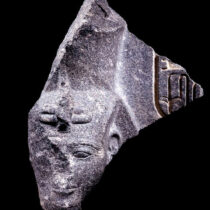Although tens of thousands of years have passed since the Neanderthals lived on the Earth, their genes are still affecting our DNA, a new study has confirmed.
So far the impact of the Neanderthals’ genetic contribution to our DNA had remained uncertain, but according to a new study researchers have established that Neanderthal DNA sequences still influence our gene expression. It is very likely that these sequences also contribute to traits such as our height, or our susceptibility to diseases or conditions such as schizophrenia or lupus.
Previous studies had already found that Neanderthal genes were associated with traits such as fat metabolism, depression and lupus risk, and skin and blood conditions. But researchers were not able to identify the mechanism behind the correlations. Although they extracted and sequenced DNA from fossils, it hasn’t been possible to do so with RNA. Therefore they haven’t been able to define whether Neanderthal genes functioned in a different way than ours.
In the new study, published in Cell on 23 February, researchers have performed tests to seek people who carried both Neanderthal and modern human versions of genes. The analyses of RNA sequences has been carried out in a dataset called the Genotype-Tissue Expression (GTEx) Project. They have been thus able to identify people who have inherited both Neanderthal and modern day human versions of the same genes, called alleles.
A member of the team, postdoctoral researcher Rajiv McCoy, says that for about 25% of the sites they tested there has been a difference in expression between the Neanderthal and the modern human allele. In the case of Neanderthals, expression of alleles was quite low in the brain and testes, indicating that these tissues evolved more rapidly. Another gene, however, ADAMTSL3, which is thought to decrease the risk of schizophrenia or influencing height, seems to remain influenced by Neanderthal DNA.
Geneticist Joshua Akey from the University of Washington, a member of the team who carried out the research and published the study, says that hybridization between modern humans and Neanderthals has increased genomic complexity, and that our ancestors’ DNA is still influencing gene expression today.
Of course, more research is needed to establish the exact correlations and associations described in the study, but what is clearly demonstrated is that Neanderthal-inherited sequences still have significant impacts on gene expression today.




